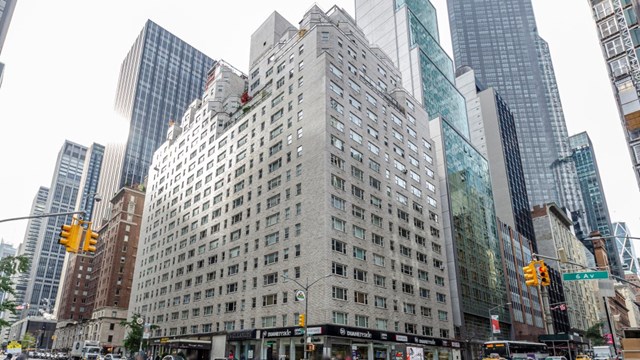
The essence of the fiduciary relationship is best described in a 1972 court decision which held that a franchisor owes a fiduciary duty to a franchisee:
- ...a fiduciary relationship is one founded on trust or confidence reposed by one person in the integrity and fidelity of another...the rule embraces both technical fiduciary relations (i.e. trustees, executors) and those informal relations which exist whenever one man trusts in and relies upon another...A fiduciary relation exists when confidence is reposed on one side and there is resulting superiority and influence on the other...
Thus, the placement of one's trust, confidence and responsibility in another person or persons is the hallmark of a fiduciary relationship. The investiture of such trust, confidence and responsibility in the fiduciary bestows upon him or her a position of influence and superiority over the person(s) with whom he deals. As such, he is charged with an extraordinary degree of moral accountability to these people. The scope of this moral accountability is most dramatically described by Judge Cardozo in the classic case of Meinhard v. Salmon:
- A trustee (i.e. fiduciary) is held to something stricter than the morals of the marketplace. Not honesty alone but the punctilio of an honor the most sensitive is then the standard of behavior...
Thus, certain types of conduct which might be permissible in the context of ordinary business dealings are off limits to a fiduciary because of the special attributes (i.e. power and influence gained by virtue of the repose of trust) of his relationship with his dependents.The courts have articulated two basic precepts of fiduciary conduct which define the contours of what Justice Cardozo referred to as the punctilio of honor standard: The duty of undivided loyalty by a fiduciary to those under his care; and the duty of a fiduciary to exercise the utmost of good faith towards his dependents. The duty of undivided loyalty basically requires the fiduciary to at all times put his charges' interest ahead of his own self interest and to refrain from profiting at their expense (i.e., no self dealing). The duty of utmost good faith basically requires the fiduciary to at all times treat his dependents fairly and ffb equally.
In the context of cooperatives and condominiums, shareholders and unit owners invest their trust in board members by casting proxies and ballots in their favor at the annual meeting. As a result of this, duly elected board members have the power to enact and enforce house rules which profoundly impact residents' daily lives. In certain cases board members have the discretion to levy fines, withhold services, or deny access to building amenities, all of which confers upon them sweeping powers over shareholders and unit owners. Co-op boards' power to prevent or restrict transfers, sublets and financings is yet another striking example of the pervasive control which board members have over the lives of their shareholders. Clearly, trust and confidence has been reposed on one side and there is a resulting superiority and influence on the other side. Thus, board members are fiduciaries to the shareholders and unit owners who have elected them to their position of power. Accordingly, individual co-op and condo board members are strictly prohibited from self dealing to the detriment of their association and its constituent shareholders or unit owners. They are also required by law to treat their shareholders or unit owners with meticulous fairness and equality.
Since the fiduciary obligation is an elastic concept which contemplates any abuse of power, it is impossible to chronicle every act which could conceivably constitute a breach. However, it is instructive to review the specific kinds of board member conduct which courts have already condemned as a breach of fiduciary duty. These cases break down into three broad categories of misconduct: Use of the board position to derive profit or otherwise promote personal interest at the expense of the association of its constituent shareholders and unit owners; use of the board position as a forum for prosecuting personal vendettas against particular shareholders or unit owners; and manifestation of favoritism among shareholders or unit owners.
As previously indicated, the failure of a board member to subordinate his personal interests to those of the association or its constituent shareholders and unit owners is called self dealing. The case of Bernheim v. 136 East 64th Street Corporation presents a classic example of alleged self dealing among board members. In this instance, several co-op board members were accused of conspiring to obtain the rejection of a proposed sale so they could acquire the unit for themselves at a below market price and flip for a profit. The breach of fiduciary duty claim had been dismissed by a lower court, but was reinstated on appeal.
In another case, the court found that board members' attempts to condition approval of a sublet arrangement on payment of a fee when they knew full well that in the absence of a...sublease fee they were not entitled to condition their approval on what monies they could extort from (the shareholders) constituted self dealing even though the proceeds were intended to fortify the co-op's treasury, not line the individual board members' pockets. The court observed that:
- By enriching the co-op at the expense of (the shareholder and his prospective subtenant) they (the individual directors) also enriched themselves.
(Obviously, had the sublet fee been properly authorized, this would not have been an issue). Another form of self dealing occurs when a board member, without the knowledge or consent of his colleagues, seizes for his own personal benefit a financial opportunity which should rightfully be an asset of the Association. In one recent case, a co-op unit became available when the record owner filed for bankruptcy and the bank which was holding the liens on the apartment declined to take it over. The unit was therefore placed on the auction block. At the auction an individual board member, acting for his own account, outbid the board, which was seeking to acquire the unit as a corporate asset. The board refused to recognize ffb its individual member's successful bid on the ground that he had breached his fiduciary duty by diverting a corporate opportunity for his own benefit. The board member sued to compel his colleagues' acceptance of his successful bid. Since an issue of fact existed as to whether the board was notified in advance of and consented to the board member's placement of his bid, the case was set down for trial. However, this case illustrates the principle that unauthorized diversion of a corporate opportunity is a form of self dealing.
Very often sponsor representatives on a co-op or condo board will vote in favor of policies which help their employers to make immediate sales of units but which, in the long run, will hurt the residents and the board. For example, sponsors will tend to push for the deferral of repairs of capital projects or the financing of these expenditures with reserve funds rather than maintenance increases or assessments. Similarly, they will tend to favor cosmetic renovations over structural repairs. These measures will make the building look good, increasing the prospect of short-term sales. However, they often camouflage the real problems, and the delay in addressing these issues frequently results in greater expense down the road after the sponsor has already sold its units. Last year an appellate court held that this kind of conduct by sponsor board representatives could constitute self dealing.
Prosecution of vendettas against particular shareholders is also a breach of the fiduciary duty. It violates the board member's obligation to manifest utmost good faith towards his wards. As previously indicated, this duty requires fair and equal treatment of all shareholders or unit owners. Such an abuse of power violates the fairness aspect of the obligation. Two sample cases illustrate the courts' approach to this sort of misconduct. In the first, a shareholder acquired a cooperative apartment that had also been coveted by the board president. Thereafter, the board refused to permit a transfer of the unit to the shareholder's daughter. A hearing was ordered to determine whether the board's refusal was prompted by the president's personal vendetta because of the shareholder's success in acquiring the apartment which (the president) himself desired. In the other case, a co-op board voted to hold up the sale of a unit until the departing shareholder agreed to settle his pending litigation with the association. The court summarily condemned this action as, among other things, a breach of fiduciary duty, and ordered that the sale proceed.
Manifestation of favoritism towards selected shareholders or unit owners, to the detriment of others, constitutes a breach of the fiduciary obligation in the sense that it violates the equality aspect of a board member's duty of utmost good faith towards his shareholders or unit owners. In the leading case on this subject, two tenant-shareholders residing in the same cooperative building entered into a contract pursuant to which one agreed to purchase the other's unit. The deal was made contingent upon the purchaser obtaining financing of not less than $50,000 and board approval. Initially, the board's admissions committee approved the transaction subject to the purchaser's obtaining mortgage financing. Thereafter, the purchaser increased the amount of mortgage financing sought, and the admissions committee rejected his application. The seller sued both the purchaser and the individual members of the admissions committee, alleging a conspiracy between them to engineer rejection of the deal. The admissions committee members were accused of counseling the purchaser to increase the amount of financing sought so that he would be financially unable to carry two apartments, and thus be rendered unacceptable to the board.In refusing to dismiss the complaint, the court observed:Contrary to defendants' contention, in an action for breach of fiduciary duty...Rather...a prima facie case of unequal stockholder treatment is (also) made out where there is a departure from precise ffb ly uniform treatment of the stockholders and a resulting violation of their fiduciary obligation to treat stockholders fairly and evenly...this duty dictates that all corporate responsibilities be discharged in good faith and with conscientious fairness, morality and honesty in purpose.
Obviously, the alleged favoritism by the admissions committee towards the purchaser, to the seller's detriment, was perceived to constitute a breach of the board members' duty of Utmost Good Faith. Numerous other cases establish that any singling out of a shareholder or a unit owner by board members for disparate treatment (whether favorable treatment to the detriment of others or unfavorable treatment to his own detriment) constitutes a breach of fiduciary duty.
The consequences of a finding of breach of fiduciary duty can be severe. First, the offending board member will be held personally liable in money damages for all pecuniary losses sustained as a result of his misconduct. Such judgments (and the attendant legal fees) are rarely, if ever, covered by directors and officer's liability insurance. In addition, courts are not shy about assessing punitive damages against those board members who breach this most exacting of moral obligations. Finally, the Business Judgment Rule does not inoculate board action from judicial review when there has been a finding of breach of fiduciary duty. Thus, board action which may in fact be highly beneficial to the community is vulnerable to being struck down by a court when it is implemented in such a fashion that it breaches the fiduciary duty. These adverse consequences can readily be avoided with advance knowledge of the nature and scope of the fiduciary obligation and forethought by board members as to the implications of their conduct.









75 Comments
Leave a Comment